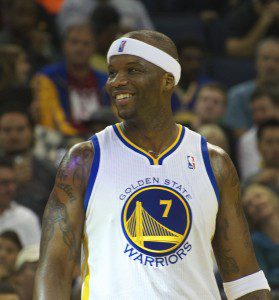 My friend Carl Park (PhD student in New Testament at TEDS) just wrote a piece on Jeremy Lin (who led the Knicks to win number seven in a row last night) and Asian-American Christian identity at the Gospel Coalition. It’s a thoughtful and elegant essay, and I commend it to you: “Linsanity and Asian American Christianity.”
My friend Carl Park (PhD student in New Testament at TEDS) just wrote a piece on Jeremy Lin (who led the Knicks to win number seven in a row last night) and Asian-American Christian identity at the Gospel Coalition. It’s a thoughtful and elegant essay, and I commend it to you: “Linsanity and Asian American Christianity.”
Here’s a snatch:
Asian American evangelicals also have a different history than white evangelicals. We have, by and large, never been a part of the Religious Right. We never marched after Roe v. Wade, and we didn’t know who Pat Robertson was. We knew James Dobson from Focus on the Family tapes, but we did not know his politics.
We weren’t a part of the fundamentalist-liberal divide from the early 20th century. So we, as gospel-pondering Christians, might attend a debate about whether or not social justice is an essential part of the church’s mission, but we’re sort of perplexed by the question. In our history, immigrant churches preached the gospel and took care of the everyday needs of the immigrant community—explaining the water and electric bills, providing loans to one another, helping each other’s children get into college—without any bifurcation or angst.
And here’s the conclusion:
Linsanity, for Asian Americans, is only partly about basketball. More significantly, it’s about that outside experience being recognized by others and, even further, evolving into inclusion. Can what happened to Lin in the NBA happen to him and other Asian American Christians in the broader American church? Can it encourage Asian American Christians to give more of their gifts and leadership to the community—and Community—at large? It sounds grandiose, insane. But, as we’ve seen the last two weeks, insanity happens.
I’m thankful for this essay and hope it continues the conversation that other forums have hosted; the Henry Center hosted a 2010 Tokyo conference, a 2009 conference at TEDS, and a 2008 Hong Kong conference. I was thankful to be able to manage each of these events, all of which considered the relationship between Christian brothers and sisters from East and West.
There’s much to think about in Carl’s piece in terms of how evangelicals from different backgrounds can learn from one another, listen to one another, and serve one another not as diverse bodies claiming the name of Christ, but as one body, constituted by faith in his name.
(Image: Debby Wong/US Presswire)











